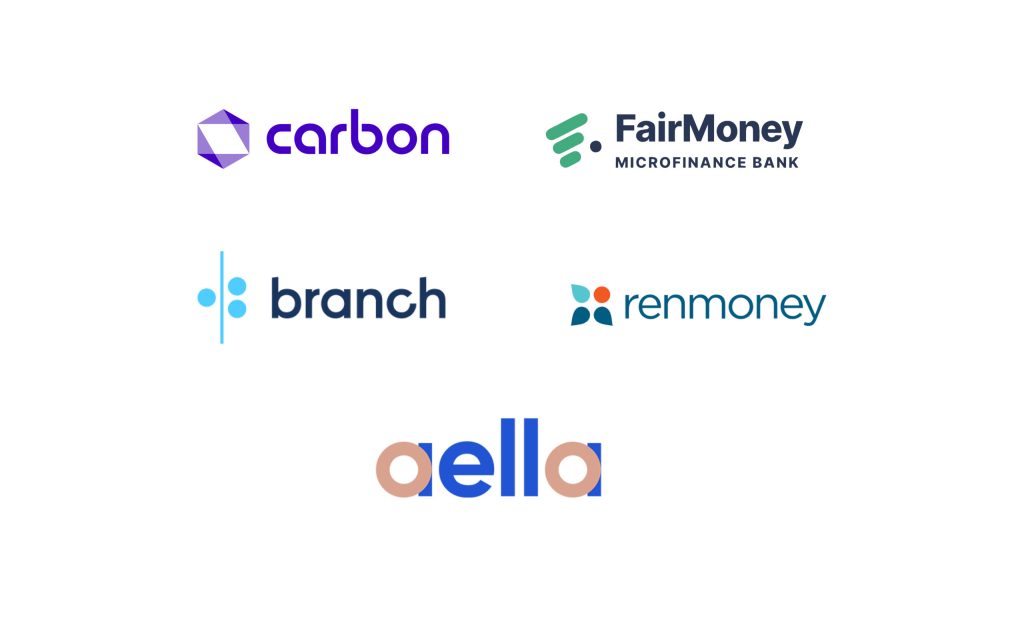Small business loans are essential financial resources that enable entrepreneurs to drive growth and surmount obstacles. Specifically designed to aid small enterprises, these loans are instrumental in sustaining and expanding businesses. Yet, the application process is riddled with potential challenges. Recognizing the vital importance of avoiding errors during this process is crucial.
This overview explores the definition and significance of small business loans, underscoring the imperative for careful attention to detail to guarantee successful loan applications and secure the essential funds for business success.
1. Lack of clear utilization plan
Having a well-defined plan for loan utilization is crucial when applying for a small business loan. This plan serves as a roadmap, clearly outlining how the funds will be used to benefit and grow the business. Effective loan utilization plans may include detailed budget breakdowns, investment strategies, and measurable goals. By presenting a concise and thoughtful plan, you demonstrate to lenders that you have a strategic vision for leveraging the funds responsibly, increasing the likelihood of a loan approval.
2. Failure to register business

Business registration is a prerequisite for loan eligibility, underscoring the legitimacy of the enterprise. To register a business, you have to follow specific steps and meet certain requirements, such as choosing a business name, filing necessary paperwork with the appropriate authorities, and obtaining the required licenses.
Failing to complete these steps can hinder the loan application process, as lenders often prioritize businesses that operate within legal frameworks. Business registration not only enhances your eligibility but also instills confidence in lenders regarding your professionalism and adherence to regulatory standards.
3. Inadequate exploration of loan options
An essential step in the small business loan application process is a thorough exploration of available small business loan options. Entrepreneurs should be well-versed in various loan types, such as term loans, lines of credit, or SBA loans, each with its own set of advantages and disadvantages. Understanding these options enables you to choose the loan product that best aligns with their business needs and financial circumstances. This knowledge empowers you to make informed decisions, optimizing your chances of securing a loan that complements your business goals and cash flow requirements.
4. Lack of repayment planning
One of the critical aspects often overlooked is the formulation of a detailed repayment strategy. Having a thought-out plan for repaying the loan showcases your financial responsibility and risk management to lenders. Entrepreneurs should assess their cash flow projections, revenue streams, and operational costs to establish a realistic repayment schedule.
Tips for effective loan repayment planning include aligning repayment schedules with business cycles, exploring flexible repayment options, and building a financial cushion to cover unforeseen challenges. By demonstrating a proactive approach to loan repayment, you enhance your credibility and increase the likelihood of loan approval.
5. Neglecting eligibility and requirements

The success of a small business loan application hinges on a detailed examination of eligibility criteria and requirements set by lenders. Entrepreneurs must meticulously review these factors to ensure alignment with their business profile. Common pitfalls in overlooking eligibility factors include neglecting credit score requirements, underestimating revenue thresholds, or failing to provide necessary documentation.
By addressing these criteria diligently, you increase you chance of meeting lender expectations and navigating the application process smoothly. Recognizing and prioritizing eligibility requirements is fundamental to positioning the business as a suitable candidate for the loan.
6. Applying for multiple business loans concurrently
Applying for multiple loans simultaneously poses significant risks and consequences for small business owners. Lenders view such actions as a sign of financial instability, raising concerns about the ability to manage debt responsibly. This common mistake can result in multiple credit inquiries, negatively impacting the business owner’s credit score.
To avoid these pitfalls, you should strategize and carefully choose the most suitable loan option before submitting applications. Implementing a thoughtful and deliberate approach to loan selection enhances the likelihood of approval and minimizes potential damage to the business’s creditworthiness.
7. Inattentiveness to financial statements

Keeping financial statements readily available is imperative during the small business loan application process. These statements, including balance sheets, income statements, and cash flow statements, provide a comprehensive overview of the business’s financial health. Tips for maintaining organized financial records include regular updates, accurate categorization of expenses, and clear documentation of revenue streams.
By presenting well-organized financial statements, applicants instill confidence in lenders regarding their financial transparency and management. Inattentiveness to this crucial aspect can lead to delays in the application process and may raise concerns about the business’s financial stability.
8. Insufficient research on lenders
Thorough research before choosing a lender is of paramount importance in the small business loan application process. Entrepreneurs should evaluate potential lenders based on criteria such as interest rates, repayment terms, and customer reviews. Inadequate research can result in unfavorable loan terms, higher costs, and potential challenges during the repayment period.
By understanding the offerings and reputation of potential lenders, you can make informed decisions that align with your business goals. Investing time in this research phase contributes to a more successful loan application and fosters a positive long-term relationship with the chosen lender.
9. Unprepared finances
Having organized financials before initiating the loan application is crucial for a seamless process. As an entrepreneur you should ensure that your financial records, including tax returns, profit and loss statements, and bank statements, are up-to-date and accurately reflect the business’s financial health. Steps to ensure financial readiness involve conducting a thorough financial audit, addressing any outstanding financial issues, and seeking professional advice if needed.
Prepared finances not only facilitate a smoother application process but also demonstrate the business owner’s commitment to financial responsibility, enhancing the likelihood of loan approval.
10. Rushing through paperwork
Rushing through the paperwork associated with small business loans application poses significant risks. The documentation process demands attention to detail, accuracy, and completeness. It is important for you to take your time to understand the required documents, including financial statements, business plans, and legal documentation. Strategies to avoid mistakes in the documentation process include creating a checklist, seeking professional assistance when needed, and allocating sufficient time for thorough review. By prioritizing accuracy and completeness, you enhance your credibility with lenders and streamline the application process, reducing the likelihood of delays or rejection.
11. Applying for the wrong loan type
Choosing an inappropriate loan type for your business can have severe consequences, impacting financial stability and hindering growth. It is imperative to align your business needs with the loan features. The guidance for choosing the most suitable loan involves a meticulous evaluation of factors like interest rates, repayment terms, and the loan’s intended purpose. This ensures that the selected loan not only caters to your immediate needs but also supports your long-term business objectives.
12. Misinterpreting small business loan terms
A thorough understanding of common loan terms and conditions is essential for effective loan management. Clarity in comprehending loan terms is crucial to avoid unforeseen challenges during repayment. This section delves into key terms such as interest rates, collateral, and repayment schedules, offering insight into their implications. Understanding these terms empowers you to make informed decisions, enhancing the overall success of the loan application and fostering a positive borrower-lender relationship.
13. Lack of a detailed business plans

A comprehensive business plan is the cornerstone of a successful loan application, providing lenders with a roadmap showcasing your business’s vision, goals, and financial projections. Key elements to include are a thorough market analysis, a detailed financial forecast, and a strategic plan for utilizing the loan. A well-crafted business plan instills confidence in lenders and demonstrates commitment to the success and growth of your business. It serves as a crucial tool for securing the loan and guiding your business’s future development.
14. Inconsistency in loan application
Presenting a consistent and reliable loan application is crucial for gaining the trust of lenders. Inconsistencies in information, whether in financial documents or business details, can raise red flags and jeopardize the approval process. Common areas of inconsistency include discrepancies in financial statements, mismatched business information, or variations in loan purpose explanations. Ensuring accuracy and uniformity throughout the application strengthens your credibility and enhances the likelihood of a successful loan outcome.
15. Applying for an inappropriate loan amount
The risks associated with applying for too much or too little are significant and can impact your business’s financial health. Applying for an inappropriate loan amount may lead to financial strain or underutilization of funds. Strategies to determine and request an appropriate loan amount involve conducting a detailed financial analysis, considering the purpose of the loan, and aligning the requested amount with actual business needs. By carefully evaluating and justifying the loan amount, you can secure the necessary funds without compromising the financial stability of you businesses.
16. Addressing defaulted or poor financial history
Rectifying and mitigating the impact of a poor financial history is crucial before applying for small business loans. This section outlines steps to resolve financial issues, including settling outstanding debts, improving credit scores, and providing explanations for past financial challenges. The role of financial improvement before applying for a loan is emphasized, highlighting the importance of showcasing positive changes and responsible financial management. By proactively addressing and resolving past financial issues, you enhance their credibility and demonstrate a commitment to financial responsibility.
17. Frequent applications to multiple loan lenders

Submitting frequent loan applications to multiple lenders can negatively impact credit scores and erode a business’s creditworthiness. This section explores the consequences of this common mistake and provides strategies to approach multiple lender applications cautiously. Tips include spacing out applications, targeting lenders aligned with your business profile, and thoroughly researching each lender’s requirements. By adopting a strategic approach to multiple applications, you can protect your credit scores, avoid potential rejections, and increase the likelihood of securing a favorable loan.
18. Managing a low credit score
The challenges and considerations of applying with a low credit score are significant but manageable. Some of the strategies to manage low credit score include addressing outstanding debts, establishing positive credit behaviors, and seeking professional advice. By actively working to enhance creditworthiness, you can position yourself more favorably in the eyes of lenders, thereby increasing your chance of securing a small business loan on reasonable terms.
19. Additional business-specific factors
Considerations specific to the nature of the business play a crucial role in the loan application process. This section explores tailoring aspects based on the business type, industry, and unique requirements. As an entrepreneur, you are encouraged to highlight industry-specific strengths, address potential challenges, and present a compelling case for loan approval. By recognizing and incorporating these business-specific factors into the application, you demonstrate a deep understanding of your industry, showcase the viability of your business model, and enhance your overall appeal to lenders.
20. Ignoring contingency planning
Neglecting to incorporate contingency planning into the loan application strategy is a common yet critical mistake. Businesses face unforeseen challenges, and an absence of contingency planning can leave entrepreneurs vulnerable. Lenders appreciate applicants who demonstrate a proactive approach by outlining how potential setbacks, such as market fluctuations or unexpected expenses, will be managed.
Ignoring contingency planning not only hinders the application’s comprehensiveness but also raises concerns about the business’s ability to navigate uncertainties. Including a robust contingency plan not only safeguards your business against unexpected challenges but also presents a well-rounded and resilient business model to potential lenders.
Conclusion
In conclusion, navigating the terrain of small business loans demands a keen awareness of potential pitfalls and a strategic approach to the application process. I have highlighted key points, emphasizing the critical need for meticulous planning and attention to detail. By recognizing the importance of a well-defined loan utilization plan, maintaining organized financial records, and comprehensively understanding eligibility criteria, you can enhance your chances of securing the funding needed for your business growth.
The takeaway is clear: meticulous planning is not just a prerequisite but a powerful tool in steering through the complexities of small business loans, ensuring a smoother application process and increased likelihood of successful loan acquisition.








